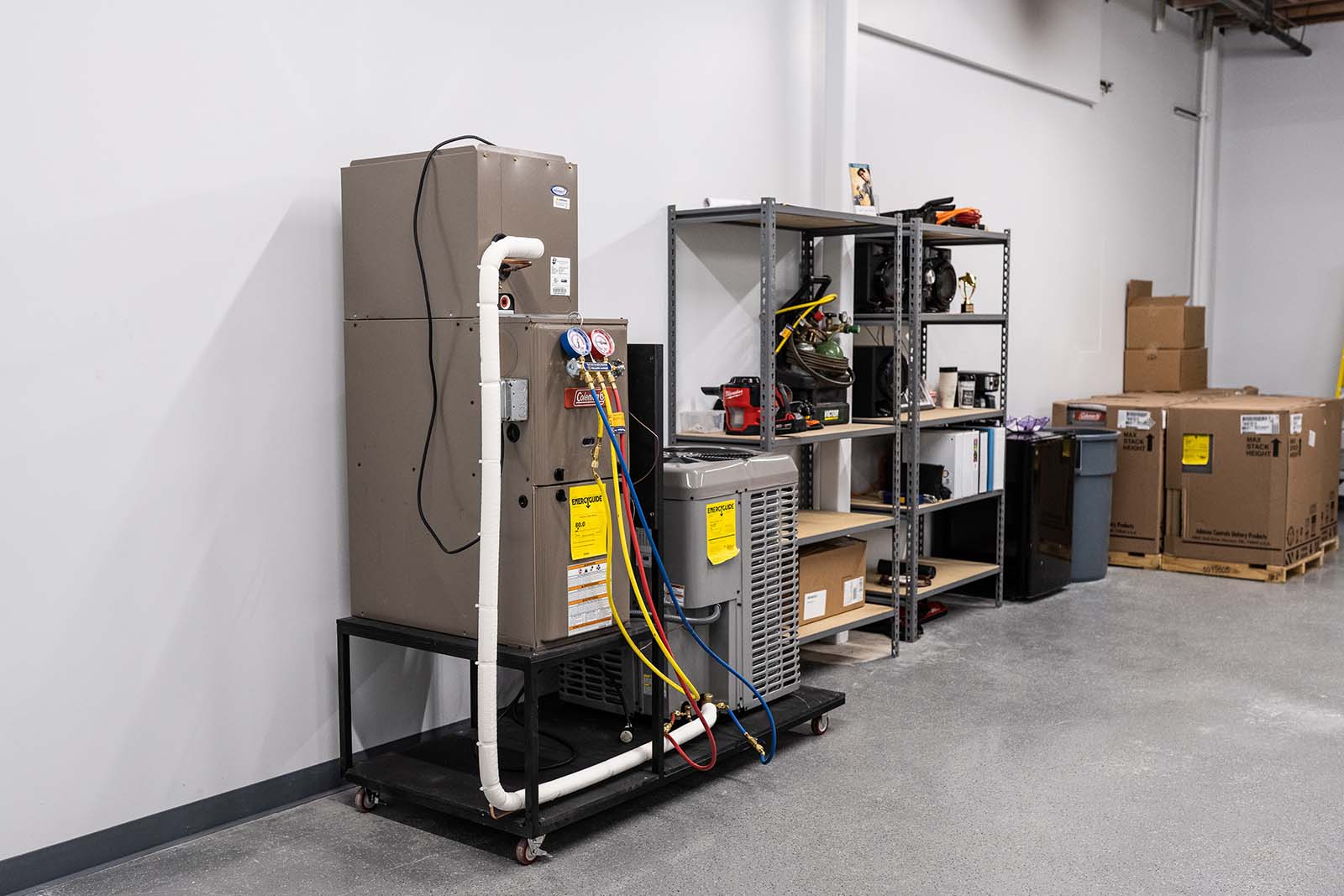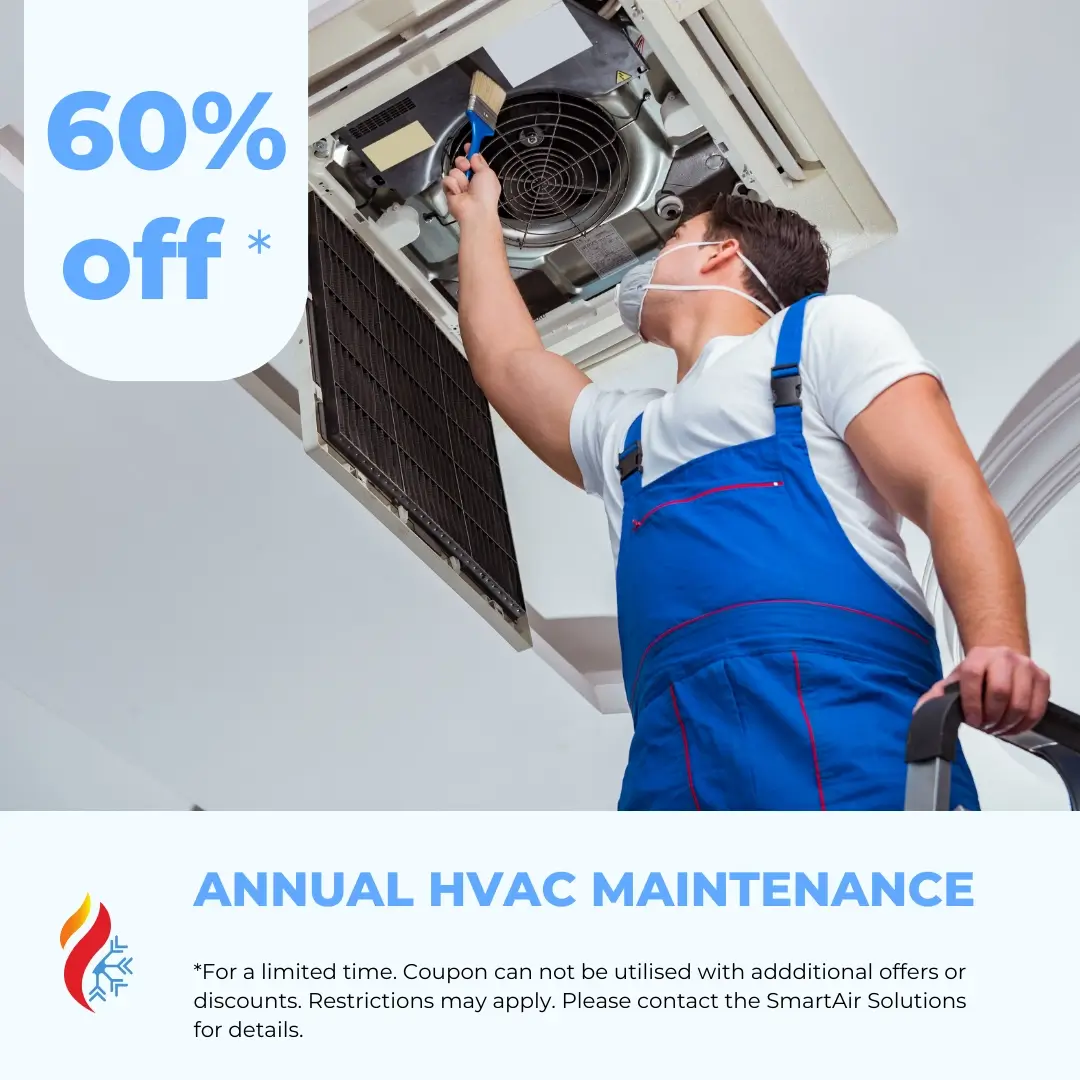An In-Depth Look at Heating And Cooling Services and Their Influence On Power Performance and Expense Financial Savings
The duty of heating and cooling solutions in boosting energy effectiveness and achieving expense financial savings is much more important than ever, as companies and home owners seek lasting options in a significantly eco-conscious world. With technological innovations like smart thermostats and high-efficiency elements, the possibility for enhancing system efficiency is huge. Yet, real effect of these technologies depends largely on regular upkeep and positive problem administration. As we check out the complex relationship in between cooling and heating systems and operational prices, including the shift towards eco-friendly options, the question occurs: exactly how can these methods be properly implemented to maximize both economic and ecological advantages?

Significance of HVAC Solutions
HVAC systems are a crucial component of modern-day structures, playing a vital function in keeping comfy and healthy and balanced interior settings. These systems, including home heating, air flow, and air conditioning, are necessary for regulating temperature, moisture, and air quality, thus ensuring the health of passengers. Effective HVAC systems add substantially to developing an ideal interior climate, which is important for both business and domestic spaces.
In business buildings, HVAC systems are important to offering a effective and safe environment. By managing indoor environment conditions, these systems assist stop the growth of mold and the spread of air-borne contaminants, hence safeguarding the health and wellness of clients and employees. Furthermore, in household settings, heating and cooling systems improve living problems by using consistent thermal comfort and improving interior air top quality, which is crucial for total health and wellness.
Furthermore, the design and upkeep of a/c systems have a straight influence on energy consumption and operational expenses. Properly developed and preserved systems can significantly reduce energy use, bring about decreased utility expenses and a smaller sized carbon impact. The performance of these systems thus plays an essential duty in advertising sustainability and power conservation within buildings, highlighting their importance in the modern-day building landscape.
Breakthroughs in Heating And Cooling Technology
Advancement in a/c modern technology is changing the means structures manage indoor environments, introducing a brand-new age of performance and control. Current advancements have actually concentrated on enhancing energy usage while improving user convenience. One notable development is the assimilation of smart thermostats, which make use of synthetic knowledge to discover tenancy patterns and adjust temperature levels appropriately, decreasing unneeded power use.
Variable Cooling Agent Circulation (VRF) systems represent one more substantial jump forward. These systems allow for precise temperature level control in different zones of a building, enhancing comfort and decreasing power waste. VRF innovation is especially beneficial for large business rooms, providing flexibility and scalability.
In addition, the arrival of Internet of Points (IoT) devices has changed HVAC systems right into interconnected networks capable of real-time data collection and evaluation. This connection allows predictive maintenance, making certain systems run at peak effectiveness and lessening unanticipated downtime.
In addition, advancements in materials and layout, such as the usage of high-efficiency coils and compressors, have actually improved total system performance - Heating Contractor. The fostering of environmentally pleasant cooling agents likewise underscores the market's dedication to sustainability
These technical technologies are critical in minimizing functional expenses and environmental impact, setting new requirements for developing environment administration.
Cooling And Heating Maintenance and Performance
Making certain optimal performance of heating and cooling systems prolongs beyond technical improvements; it likewise pivots on reliable maintenance methods. Regular maintenance is critical for sustaining efficiency, decreasing energy intake, and prolonging the lifetime of cooling and heating systems. The key objective is to make sure that all elements function at their peak possibility, consequently lessening power waste and maintaining constant interior comfort levels.
Regular upkeep jobs, such as cleansing or changing air click for more info filters, checking refrigerant degrees, and examining ductwork for leakages, are crucial for preventing unneeded pressure on the system. Stopped up or dirty filters can block airflow, creating the system to function harder and eat more energy. Likewise, poor cooling agent degrees can lower cooling down efficiency, leading to greater operational costs.
Additionally, regular assessments by qualified specialists can identify prospective issues prior to they intensify right into pricey repair services or system failings. These examinations usually consist of inspecting electrical connections, adjusting thermostats, and making sure the overall stability of the hop over to these guys heating and cooling system. By addressing minor issues early, services and home owners can stay clear of unanticipated break downs and improve energy efficiency.
Affordable HVAC Solutions
For those wanting to obtain the most out of their air flow, home heating, and air conditioning systems without damaging the financial institution, exploring affordable a/c options can make a substantial difference. One immediate procedure is to spend in programmable thermostats, which enable customers to set details temperature levels for various times of the day, optimizing power use and minimizing unnecessary intake. By automating temperature adjustments, house owners can attain substantial savings on power costs.
Routine upkeep is an additional crucial element of affordable cooling and heating management. Making certain that filters are cleaned up or changed consistently, ductwork is secured, and systems are serviced by specialists can stop costly repair work and improve system long life. Preventive upkeep not just preserves system performance yet likewise helps in preventing unanticipated failures that can bring about pricey emergency repair services.
Additionally, retrofitting existing systems with energy-efficient parts, such as variable rate electric motors or high-efficiency compressors, can be a prudent investment. These upgrades enhance operational performance, lower power use, and can typically be carried out at a portion of the price of a full system replacement.
Environmental Effect Decrease
Minimizing the environmental impact of HVAC systems is critical in today's pursuit of sustainable living. A/c systems are significant factors to power intake, accounting for almost 40% of power usage in business structures.
Technological improvements in cooling and heating style and procedure, including the combination of smart thermostats and energy-efficient heat pumps, are crucial in minimizing carbon impacts. These innovations permit maximized energy use, minimizing waste and improving overall system efficiency. In addition, adopting regular upkeep methods guarantees HVAC systems operate at peak effectiveness, further stopping unnecessary energy consumption.
Moreover, using environmentally pleasant cooling agents is vital, as standard cooling agents, like read here CFCs and HCFCs, have been phased out because of their ozone-depleting buildings. Modern choices, such as hydrofluoroolefins (HFOs), offer decreased environmental risks, aligning with worldwide environmental protocols. By embracing these sustainable methods, HVAC solutions can play a transformative duty in reducing environmental effects, promoting energy performance, and promoting a much more lasting future.
Final Thought

Moreover, the design and maintenance of Cooling and heating systems have a direct impact on energy intake and functional prices. Regular maintenance is important for maintaining performance, decreasing power consumption, and expanding the life span of Cooling and heating systems. Heating and cooling systems are significant factors to energy consumption, accounting for nearly 40% of power use in industrial buildings. In addition, adopting routine maintenance practices guarantees Cooling and heating systems operate at peak efficiency, additional curtailing unnecessary power consumption.
The transition to eco friendly Heating and cooling systems better decreases functional expenses and advertises sustainability. (Heating Contractor)
Comments on “Heating Contractor Focusing On Effective Home Heating Solutions”